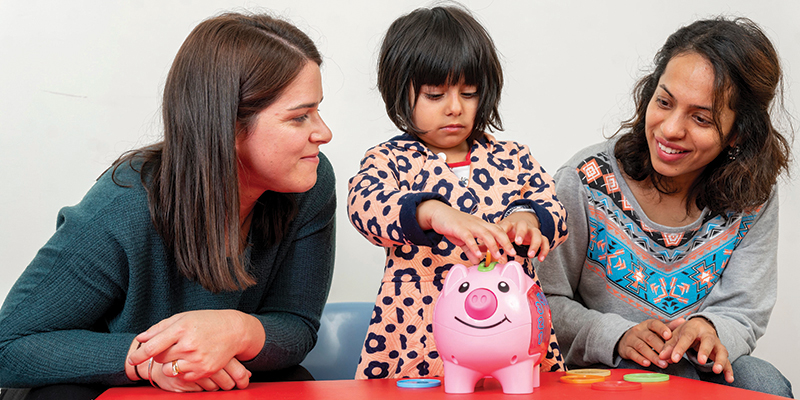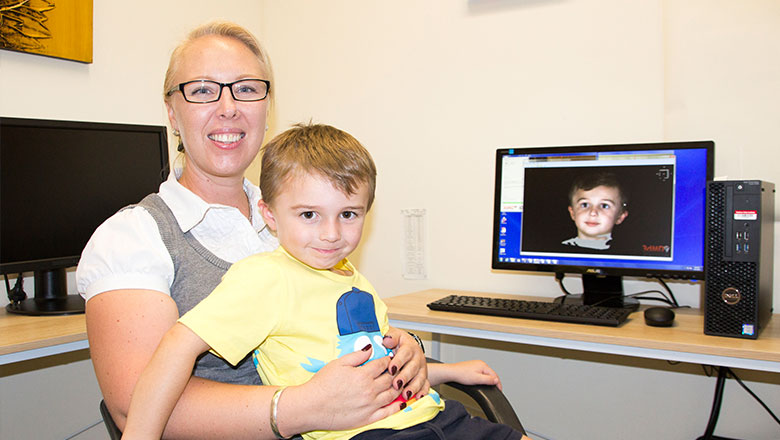Search

News & Events
Unique CliniKids a marriage of research and practiceA unique new model developed by the The Kids autism research team marries cutting-edge research with clinical practice to offer families innovative, evidence-based interventions designed to help kids reach their full potential.

News & Events
3D face scanner could improve early diagnosis for kids with autismCan you see signs of autism in a child's facial features? Telethon Kids researchers have acquired new face scanning technology to help answer this question.

Be involved in the Sibling Snapshot Project! Researchers from The Kids Research Institute Australia are conducting research which explores the unique

Join a Focus Group for the Sibling Support Study! Researchers from The Kids Research Institute Australia are conducting research which explores the
Research
Commentary: A spectrum for all? A response to Green et al. (2023), neurodiversity, autism and health careThe broadening of the clinical definition of autism over time-the so-called, autism spectrum-has run in parallel with the growth of a neurodiversity movement that has reframed the concept of autism entirely. Without a coherent and evidence-based framework through which both of these advances can be situated, the field is at risk of losing definition altogether.
Research
Interactions between the lipidome and genetic and environmental factors in autismAutism omics research has historically been reductionist and diagnosis centric, with little attention paid to common co-occurring conditions (for example, sleep and feeding disorders) and the complex interplay between molecular profiles and neurodevelopment, genetics, environmental factors and health. Here we explored the plasma lipidome in 765 children (485 diagnosed with autism spectrum disorder (ASD)) within the Australian Autism Biobank.
Research
The Utility of Natural Language Samples for Assessing Communication and Language in Infants Referred with Early Signs of AutismNatural Language Sampling (NLS) offers clear potential for communication and language assessment, where other data might be difficult to interpret. We leveraged existing primary data for 18-month-olds showing early signs of autism, to examine the reliability and concurrent construct validity of NLS-derived measures coded from video-of child language, parent linguistic input, and dyadic balance of communicative interaction-against standardised assessment scores. Using Systematic Analysis of Language Transcripts (SALT) software and coding conventions, masked coders achieved good-to-excellent inter-rater agreement across all measures.
Research
An Evaluation of the Overall Utility of Measures of Functioning Suitable for School-Aged Children on the Autism Spectrum: A Scoping ReviewA diagnosis of an autism spectrum condition (autism) provides limited information regarding an individual’s level of functioning, information key in determining support and funding needs.
Research
Non-pharmacological interventions for autistic children: An umbrella reviewThe breadth of available non-pharmacological interventions for autistic children, with varying evidence for efficacy summarised in multiple systematic reviews, creates challenges for parents, practitioners, and policymakers in navigating the research evidence. In this article, we report the findings of an umbrella review of 58 systematic reviews of non-pharmacological interventions for autistic children (aged 0–12 years).
Research
Changes to the Gut Microbiome in Young Children Showing Early Behavioral Signs of AutismThe human gut microbiome has increasingly been associated with autism spectrum disorder (ASD), which is a neurological developmental disorder, characterized by impairments to social interaction.
